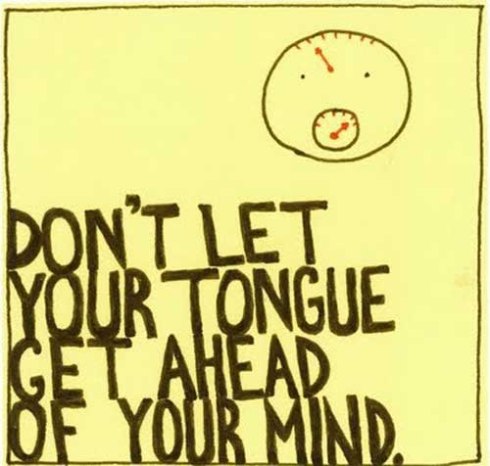Kierkegaard writes that people demand freedom of speech as a compensation for the freedom of thought which they seldom use. It is indeed an interesting observation. Undoubtedly, people are likely to become intellectually more refined individuals with contemplation and critical reflection. The need to debate and propagate is only the second step in this process of critical evaluation of themselves and their societies, which is built on the very foundation of freedom of thought first. This is not to undermine the importance of freedom of expression and speech, but just to stress upon the idea that freedom to speak in an unreflective and thoughtless manner does not essentially amount to any useful human freedom. However, there is barely any acknowledgement or appreciation of the fact that no polity in the world can directly restrain freedom of thought, unless it is indirectly hindered using propaganda and indoctrination to stem people’s mental faculties. Perhaps, one must get to live once, in the fictional, Orwellian world of thought police and telescreens to appreciate the importance and blessings of freedom of thought. Freedom of speech and expression has increasingly become a contentious subject in today’s politics. Free world hails maintenance of an open society as one of its significant achievements, and considers suppression of free speech as analogous to state-controlled, totalitarian society’s characteristics. But even the Free World has to draw some legal boundaries to proscribe certain types of speech which causes more harm to society than good, hate speech and libel for instance. John Stuart Mill, the most prominent advocate of free speech in the Western political philosophy, advocates that freedom of speech must be protected under all circumstances and the minority’s viewpoint must not be stifled because it does not only challenge the majority’s opinion but tends to debunk it when it is false, and to buttress it when it’s right. However, Mill also maintains the inviolability of the harm principle in that freedom of speech must be maintained to the point where it injures no one else. Karl Popper develops on this point further in his famous formulation of the ‘paradox of tolerance’, expressed in his ‘The Open Society and its Enemies’:
Less well known is the paradox of tolerance: Unlimited tolerance must lead to the disappearance of tolerance. If we extend unlimited tolerance even to those who are intolerant, if we are not prepared to defend a tolerant society against the onslaught of the intolerant, then the tolerant will be destroyed, and tolerance with them. — In this formulation, I do not imply, for instance, that we should always suppress the utterance of intolerant philosophies; as long as we can counter them by rational argument and keep them in check by public opinion, suppression would certainly be unwise. But we should claim the right to suppress them if necessary even by force; for it may easily turn out that they are not prepared to meet us on the level of rational argument, but begin by denouncing all argument; they may forbid their followers to listen to rational argument, because it is deceptive, and teach them to answer arguments by the use of their fists or pistols. We should therefore claim, in the name of tolerance, the right not to tolerate the intolerant. (Emphasis added) We should claim that any movement preaching intolerance places itself outside the law, and we should consider incitement to intolerance and persecution as criminal, in the same way as we should consider incitement to murder, or to kidnapping, or to the revival of the slave trade, as criminal (723).
These thinkers envisage a world where someone’s freedom does not militate against anyone else’s life, wellbeing or liberty. However, certain contemporary intellectuals subscribe to the fundamentally inconsistent position whereby they use third-party effects as a justification for restricting economic freedom. In the same breath, they also maintain that freedom of speech must be protected, even if it comes with any costs being imposed on the third parties. If the spillover effects, also known as the negative externalities, must be considered as a serious concern in policy framing, then this approach should be extended to all realms instead of picking and choosing some, and leaving others unrestrained.
The right to freedom of speech is not absolute.

